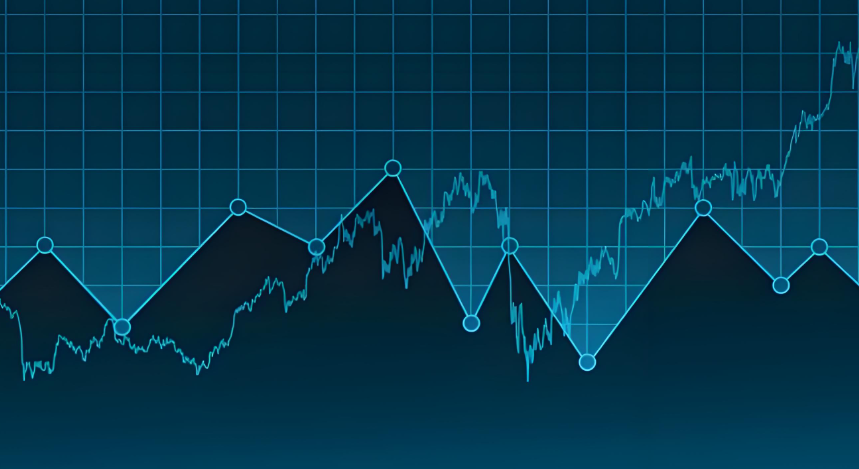Luxury Stocks May Experience a Turning Point
Advertisements
In recent months, the financial landscape of France has become increasingly murky, marked by a pronounced depreciation in its assets. Despite the efforts of François Béru to navigate the ongoing political turmoil, investor confidence has not returned, casting a long shadow over the nation's economic prospects. The urgency of the situation calls for a tangible roadmap aimed at effectively slashing the ballooning budget deficit, which continues to serve as a significant barrier to attracting investment.
The CAC 40 index, a barometer of the French stock market, has underperformed dramatically compared to other key European indices. This disparity has attracted wide-ranging scrutiny, particularly in light of rising costs for insurance against sovereign default – a clear indicator of mounting uncertainty in the market. According to recent data, the yield spread between French and German bonds has surged to approximately 80 basis points, nearly doubling from previous levels and reflecting heightened instability within the French bond market. Compounding these challenges, trading activity in French financial markets has seen a steep decline since last August, leading to a significant drop in trading volumes, a reduction in market enthusiasm, and lower levels of investor participation. This persistent downturn not only undermines the vibrancy of France's capital markets but also has detrimental effects on the nation's economic financing and resource allocation, necessitating urgent remedies.
Francesca Juvyns, a global market strategist at JPMorgan Asset Management, articulates the prevailing sentiment succinctly, noting that the French stock market is overshadowed by a "Damocles sword." He emphasizes the market's demand for decisive action on the deficit: "The CAC 40 and the European markets urgently need to eliminate these uncertainties and push forward with budget reforms to restore competitiveness." The call for action is amplified by observations from Juvyns regarding the likelihood of a new round of political maneuvers in July. He extrapolates that given the current fiscal conditions and the political stalemate, the existing spread of 80 basis points between French and German debt might be relatively modest, suggesting that a final level of 100 basis points would be more appropriate under the circumstances.
Béru recently announced intentions to limit the budget deficit to 5.4% of GDP for the year 2025, which is slightly above the deficit targets set by the preceding government, a move that has been greeted positively by the market. However, his ambitions to further curtail the deficit to the EU target of 3% by 2029 have not fully assuaged investor apprehensions. Adding to the uncertainty, Béru is slated to confront a potential vote of no confidence later this week, although forecasts suggest his administration is likely to withstand this challenge. With multiple votes expected in the coming weeks, Béru has been proactively engaging with various political factions.

Strikingly, despite a series of setbacks, the valuation of French blue-chip stocks has not shown significant deterioration. The CAC 40 index currently boasts a trailing price-to-earnings (P/E) ratio of 13.5, which aligns closely with its long-term average and stands at par with the benchmark Stoxx Europe 600 index. This stability in valuation indicates that, despite the adversities faced, the index remains resilient within a relatively stable range. In stark contrast, a basket of domestic-focused stocks tracked by Goldman Sachs reveals a troubling scenario, with an anticipated P/E ratio of less than 8, marking the lowest level in over two years.
Arnaud Girod, Executive Director of Economic and Cross-Asset Strategy at Kepler Cheuvreux, articulates his concern over the bargain pricing of stocks correlated to the French economy, noting that the perpetually high political risks render purchasing these equities unappealing. As the luxury sector continues to dominate other areas of the French stock market, Girod maintains a neutral stance on luxury stocks, underscoring the necessity of stability in order to attract investors back into the market.
Investors exhibit a growing consensus concerning the French stock market, yet they also uncover discrepancies while evaluating the CAC 40 index. A striking 15% of revenue from the constituent stocks originates from the French domestic market, yet their underwhelming profitability has raised eyebrows. Factors beyond political turmoil also loom large, particularly as the growth trajectory of these constituent companies heavily relies on the uncertain dynamics of the global economy. With more than 50% of the benchmark's composition belonging to non-essential consumer goods and industrials, companies such as LVMH and Hermès dominate the index, collectively representing approximately 20% of its weight. Notably, shares of Switzerland's Richemont Group surged by 14% following unexpected third-quarter sales results, hinting at a potential turnaround for similar French luxury stocks, thereby pulling investors’ gaze toward future developments within this segment.
Benjamin Melman, Chief Investment Officer at Edmond de Rothschild Asset Management, points out the persistent underperformance of the French stock market since the beginning of the year, with risk discounts still prevalent. However, he anticipates these discounts may not expand further unless a new political crisis emerges. He asserts that the current French government's strategic pivot differs from that of its predecessor, potentially offering a degree of sustainability and extending political predictability, although he cautions that visibility remains limited.
In summation, while the French financial milieu is characterized by uncertainty and instability, the resolve of its leadership, mandated budget adjustments, and an evolving economic landscape could harbor avenues for recovery. Moving forward, it is imperative for the government to not only restore investor confidence through strategic reforms and enhanced political stability but also to address the broader economic concerns that could ultimately revitalize France's financial markets and facilitate sustainable growth.